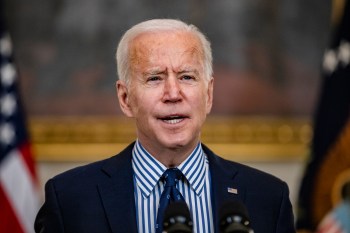These midterms mean gridlock. So Wall Street’s happy.
Come next year, there will be more Republicans in the U.S. Senate and the House of Representatives. On Wednesday, President Obama held a news conference, and he told Americans he is open to compromise.
“I am eager to work with the new congress to make the next two years as productive as possible,” the president said.
But in all likelihood, Washington is going to get more polarized, and consensus is lawmakers are not going to pass any big legislation. Congress could tackle tax reform or pass a budget, but it is more likely that gridlock and dysfunction will be on the agenda.
“For the most part, it’s going to be largely a replay of the last few years,” says David Lefkowitz, a senior equity strategist with UBS. That may drive many Americans crazy; but for investors, stasis is one kind of certainty. “To the extent that we just have a continuation of the status quo, but maybe with a slightly different flavor, investors can sort of get their arms around that, and understand what that means,” he explains.
There is also a belief, according to Russ Koesterich, BlackRock’s chief investment strategist, “that having divided government prevents either party from their worst excesses, and generally, divided government is associated with better market returns.” He cautions that belief is based more on instinct than historical evidence.
According to Greg Valliere, the Potomac Research Group’s chief political strategist, Wall Street has grown accustomed to the way Washington works – or doesn’t. “I talk to a lot of professional investors, and many of them sort of roll their eyes when you talk to them about Washington,” he says.
And while they can make due, especially when the U.S. economy is on the upswing and the dollar is strong, Lefkowitz says investors can get impatient. “We still will have the budget battles, and we will have to raise the debt ceiling next year,” he notes. Those two debates, which have led to government shutdowns and put the country’s credit rating at risk, are not far off.
There’s a lot happening in the world. Through it all, Marketplace is here for you.
You rely on Marketplace to break down the world’s events and tell you how it affects you in a fact-based, approachable way. We rely on your financial support to keep making that possible.
Your donation today powers the independent journalism that you rely on. For just $5/month, you can help sustain Marketplace so we can keep reporting on the things that matter to you.


















